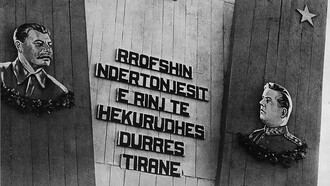Isn't it a characteristic of the age we live in that it has made everyone in a way a migrant and a member of a minority?”
(Amin Maalouf)
Latin America is home to a massive chunk of the Lebanese diaspora. There, they found a welcoming destination and have fully integrated to the extent that only their last names with harsh consonants reveal their identity. For the most part, they are taken for granted in a region that is largely taken for granted itself.
Some migratory movements and diasporas are famous. Some are so famous that they have a whole identity attached to them. Just think of the chicanos in the Southwest USA, Italians in the New York metro area with their quaint Little Italy, and of course, all the Chinatowns all over the world.
These are groups of people who have built a symbiosis with their family’s culture and that of the place where they live. This is not a new thing; historically, European cities had a Jewish quarter, and many Asian nations had missionary communities.
Sociologically, Latin America is referred to as being composed of a tripartite mix of natives, Europeans, and Africans. The natives are descended from pre-Columbian tribes, the Europeans came mostly from Spain but also from Portugal, as is the case for Brazil, and the Africans arrived via the slave trade. These groups have all been intermixing since the early 16th century, and now all of us have a certain degree of each in our genetic makeup. Venezuelan statesman Laureano Vallenilla Lanz said, “We are all café con leche, some with more café and some with more leche.”
How and when do the Lebanese fit into the LatAm recipe?
In the second half of the 19th century, the Ottoman Empire was collapsing from its own weight. In need of restructuring, the empire implemented the strong “Tanzimat” reforms and started to foster a “Turkish” nationalist sentiment. As a by-product, Christian minorities started facing segregation and exclusion. This effectively prompted the first migration wave. Subsequent episodes like the Armenian genocide, the Great Depression, World War II, and the fifteen-year-long Lebanese civil war are all considered causes of the following migration waves.
Why Latin America? First, the region was and is mostly Catholic. Lebanese Christians are mostly Maronite, an Eastern Catholic denomination in full communion with the Pope of Rome. Second, Latin America was just recently pacified after a convoluted mid-19th century full of civil wars and unrest. Except for Brazil and Cuba, the region completely missed the Industrial Revolution. Therefore, any source of capital, even human capital, was welcomed.
For a region with abundant land, in need of commercial activity, and influenced very much by what they heard on Sunday mornings, these swaths of ambitious, trade-knowing, cross-bearing, Arabic speakers with Ottoman documents were actually the perfect match.
A historical side note must be made to clear away doubts on terminology. Since they came from the Ottoman Empire or Turkey, they were initially called “Turks” and, since they spoke Arabic, they were also referred to as “Arabs”. The reality is that they are neither Turkish nor Arabic in origin. The native territory of these Middle Eastern Christians encompasses modern Lebanon, Syria, Palestine, and Jordan. This region is called the Levant, and the most proper term for their ethnicity would be Levantine or Phoenician. To this day, however, in Latin America, they are still called Arabs, Syrio-Lebanese, or simply Lebanese. This misnaming is not exclusive to the Lebanese. Greeks, Assyrians, and Armenians were called Turks as they settled around Europe and the US. Even the Ottoman-born Greek shipping magnate Aristoteles Onassis was nicknamed El Turquito by his detractors, all while being a naturalized citizen of Argentina.
What is so relevant about this group of people that one would consider writing about them?
Simply put, they are a massive success story. Latin America is rarely considered a land of opportunity. The Lebanese diaspora would be quick to disprove that. A simple Google search of influential businessmen, politicians, and cultural figures in Latin American countries shows a strong representation of Lebanese last names in these lists.
The richest man in Mexico is Carlos Slim Helú. The Brazilian finance minister and former mayor of São Paulo is Fernando Haddad. The presidents of El Salvador and the Dominican Republic are Nayib Bukele and Luis Abinader, respectively. Shakira is not an alias, it’s her real name, Shakira Mebarak. Ever heard of Salma Hayek? You guessed it. Carlos Ghosn, love him or hate him, was born in the middle of the Brazilian jungle.
And those are just some contemporary ones that come to mind. If we focus just on politicians, it's amazing to see how many have reached the highest spheres of power. Former presidents include the Argentinian Carlos Menem, the Ecuadorians Abdalá Bucaram and Jamil Mahuad, and the Colombian Julio César Turbay.
Besides their oddly “out of place” last names for Hispanic countries, what they have in common is that they are, for the most part, only two generations, if not one removed, from the homeland. That speaks volumes about the degree of social mobility they reached in their “host” countries. In a region famous for stagnation, lack of opportunities, and emigration, the Lebanese diaspora seems to have made it.
Personally, I don't know a single member of this community who is not considered upper-middle class or well-off. And, mind you, I am from the Caribbean region of Colombia, where this community is abundant, so it's not like a cherry-picked small sample size to showcase a minority. It is an observable example of a socio-economic dynamic. In my region, árabe is a synonym of wealthy.
The most representative businessman of this region, and interestingly enough, electoral baron, is the legendary Fuad Char Abdalá. As patriarch of the Char family, he oversees a conglomerate that owns a soccer team, a radio station, and a chain of supermarkets and pharmacies, among others. Quite similar to the Maluf family of São Paulo, if any readers are into Brazilian politics. The Char family uses their power and influence to elect mayors, governors, and representatives, as well as having a say in most of the public contracts awarded across the region. Not bad for the son of Syrian immigrants.
A Ph.D. in sociology would probably write a research paper using measurements like income and college degrees to measure social mobility in generations of Lebanese families across multiple Latin American countries with census data and interviews. That would take a lot of time, and frankly, I have a real job, so I invite you to Google “Lebanese community in X country” and you will be surprised that the trend of rags to riches in 2-3 generations forms a pattern.
Reflections
The closest explanation I can find is those that are assigned to members of the Jewish diaspora worldwide or that of the Asian diasporas in the US. A culture of discipline, hard work, and strong family networks (yes, nepotism could play a role) is a strong incentive to get your act together.
What is odd is that, unlike Asians in the US, Indians in the UK and Canada, or Jewish communities everywhere, the Lebanese are silent about their origin. They have fully integrated into their respective countries to the point that being Lebanese is limited to Grandma’s recipes, cultural events, or birthdays and weddings, where they play music that Grandma doesn't even understand. Much like the Italians or Irish in the US who are considered just Americans, the Lebanese in Latin America are, well, Latin Americans. A tiny, dying minority speaks Arabic, and very rarely do they hold dual citizenship. They are also not endogamic, unlike the Indian or Jewish diaspora. It is mostly considered a superficial identity.
A final consideration is the little relevance Lebanon itself plays in the region. Lebanon is tiny, and it is said that Lebanon has a larger diaspora than population. Ask a Lebanese Latin American if they identify as Lebanese, and they will all say yes. However, Lebanon has no diplomatic influence in Latin America. No candidate travels to Latin America to sway the overseas vote. Perhaps, in Lebanon, they know that their Latin American cousins feel a very distant connection to the fatherland. Just the language barrier itself marks more distance than the physical one. The overseas political representation of Lebanese citizens is mostly limited to France, Canada, and Francophone Africa. A good cultural diplomacy campaign could be built around integrating this century-old diaspora. Some countries like India, Ireland, and Italy are considered net exporters of people and have historically cared about their diaspora.
As a tip, if a friend with a last name like Ambrad, Farah, or Manzur invites you for lunch, accept. The trifecta of temptation of tahini, toum, and tabbouleh, which accompanies most of their meals, will make you wonder if, perhaps, these people are up to something, and it is worth knowing more about them.















